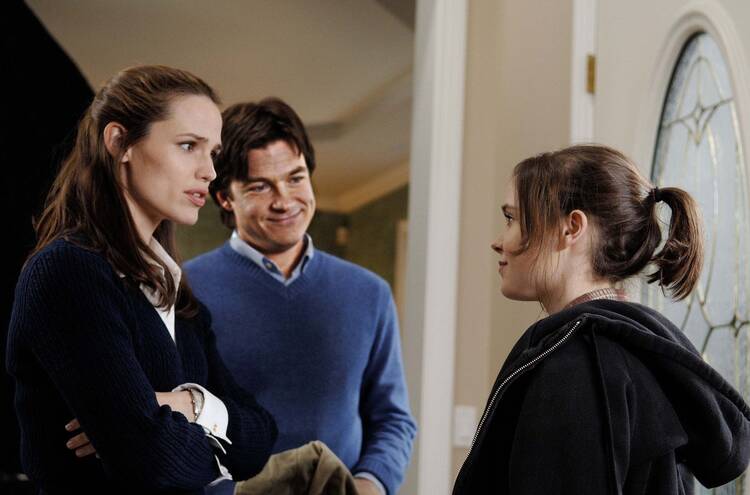Traditionally, becoming a parent means you have completed your journey into adulthood. By having (and raising) your own child, you leave behind the remains of your childhood. Following the blueprint of the mid-century American Dream, becoming a parent is preceded by other achievements: a college degree, a steady job, marriage, a house and a car. Of course, in reality, we know that there are as many different paths to parenthood as there are parents. For some, having a child is where the journey to adulthood begins.
That’s the case for 16-year-old Juno (Elliot Page), the sardonic protagonist of “Juno” (2007), directed by Jason Reitman with an Academy-Award-winning script by Diablo Cody. Discovering that she’s pregnant after a one-nightstand with her sweet and awkward friend Paulie (Michael Cera), Juno decides to give her child up for adoption. She finds a couple, prim Vanessa (Jennifer Garner) and laidback Mark (Jason Bateman), through a classified ad. While Juno hopes to return to her normal, teenage life with minimal disruption, her simple arrangement with Vanessa and Mark turns out to be anything but. Faced with adult responsibilities and complications, Juno realizes that she has a lot of growing up to do before her baby is born.
Upon its release, the film generated a lot of debate over whether the film was pro-life or pro-choice in Juno’s pivotal decision not to get an abortion. Americaweighed in and I agree with that take: It would be an exaggeration to call “Juno” pro-life, but it is encouraging to see a popular film diverge from the familiar culture war battle lines. (Cody, for the record, is vociferously pro-choice, and told The Hollywood Reporter in 2022 that she was horrified when her Catholic high school thanked her for writing a pro-life film).
Juno’s decision to carry her child to term is less a political statement than it is an evocation of the film’s central theme: that growing up means taking responsibility for your relationships with others. Juno starts self-centered to the point of being callous, wrapping any sincere emotion in spiky layers of sarcasm. (She’d be unlikeable if she weren’t so funny, and Page delivers a layered, charismatic performance.) But as her pregnancy goes on she has to reckon with how her words and actions impact others: both the harm she’s capable of causing and the kindness she’s capable of offering.
She’s not the only one trying to figure it out. Vanessa has all of the trappings of picture-perfect adulthood but is unable to bear children. She tells Juno that she was born to be a mother, but you can tell Vanessa fears it will never happen—that she is unworthy in some way. But Vanessa already has the most important qualification of a parent: the ability to love selflessly. In “Amoris Laetitia,” Pope Francis called parents “a sign of the free and selfless love of Jesus.” In our faith, and in “Juno,” selfless love is a truer mark of maturity than any other.
Through her pregnancy, Juno comes to appreciate the sources of selfless love in her own life—her parents, Paulie—and to offer that love in return. She’s not ready to be a parent, but she is on the path to becoming a more mature, more loving human being. Of all the steps on the path to adulthood, maybe that’s the most important one.
“Juno” is streaming on Hulu.







